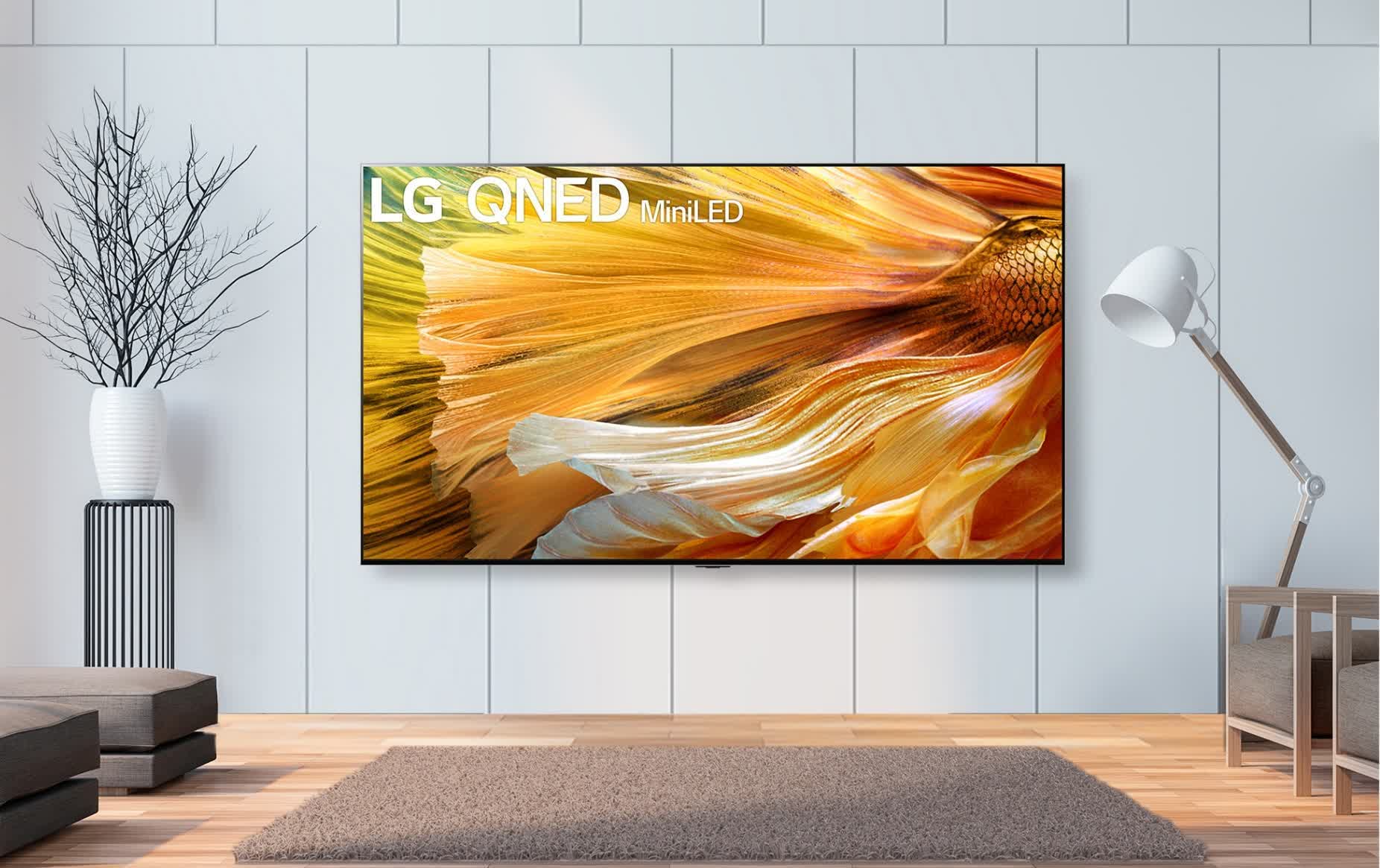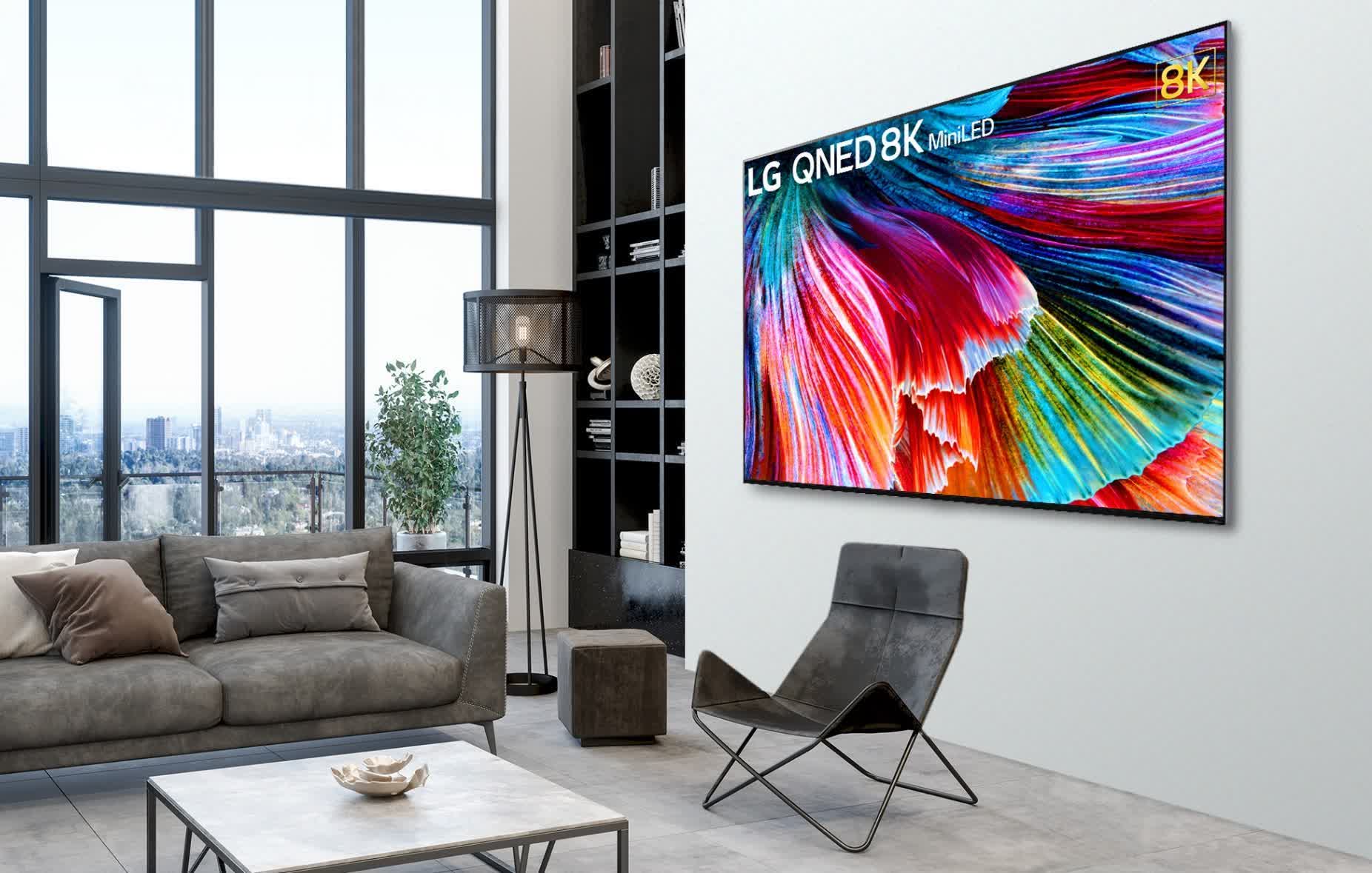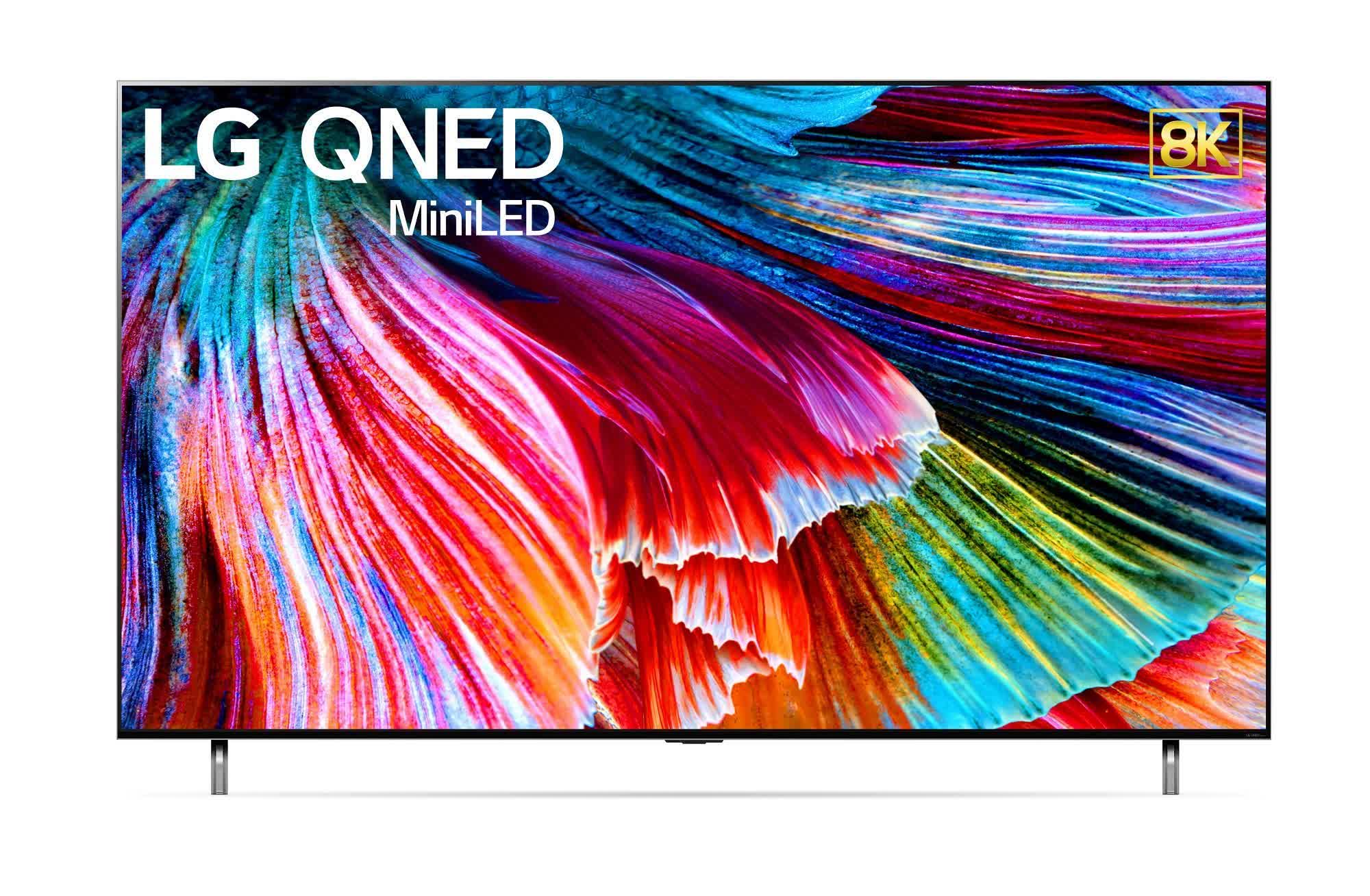Recap: Although LG waved goodbye to the mobile phone market recently, its TV division is still an industry leader. This month sees the release of the company's first consumer Mini LED TVs (QNED) that it announced back in December. The televisions offer improved peak brightness and contrast ratio compared to other LCD TVs while being cheaper than OLEDs.
Samsung is one of several TV makers to have embraced Mini LED products recently—not to be confused with the expensive MicroLED, which is similar to OLEDs in that it's self-illuminating with no backlight. Mini LED technology is also found in the most recent 12.9-inch iPad Pro and laptops such as the upcoming Acer Predator Helios 500.
LG's implementation, which it calls Quantum Nanocell Mini LED (QNED), works in the same way as rival TV makers. The Mini LED backlighting consists of "almost 30,000 tiny LEDs that produce incredible peak brightness and a contrast ratio of 1,000,000:1 when paired with up to 2,500 dimming zones and advanced local dimming technology." LG notes that those figures are for the 86-inch 8K model.
The Mini LEDs allow for "incredible" color accuracy, along with high contrast—10 times better than regular LCD TVs—deep blacks, and a wide color gamut that gives an excellent HDR image quality. But LG itself empathizes that QNED isn't on the same level as its OLED TVs, hence the lower prices, though the larger models and 8K versions get expensive.
LG's 4K QNED TVs start at $1,999 for the 65-inch model, with the 75-inch selling at $2,999 and the 86-inch version costing $3,999. Going up to 8K bumps the prices, naturally. The 65-inch 8K TV is $3,499, the 75-inch model is $4,799, and the 86-inch 8K QNED is $6,499.
Refresh rates vary from 60Hz to 120Hz, but only the 4K models have Variable Refresh Rates (VRR). Each of these new sets has HDMI 2.1 ports, making them a good option for PS5/XBSX gamers, and support HDR10, HLG, and Dolby Vision HDR, along with Dolby Atmos. The 4K models feature the a7 Gen 4 AI processor, with the premium a9 Gen 4 AI chip is reserved for the 8K TVs.
The 4K QNED90 and 8K QNED99 launch in North America this month and will arrive in other regions a few weeks later.
https://www.techspot.com/news/90265-lg-first-mini-led-tvs-arrive-month.html


